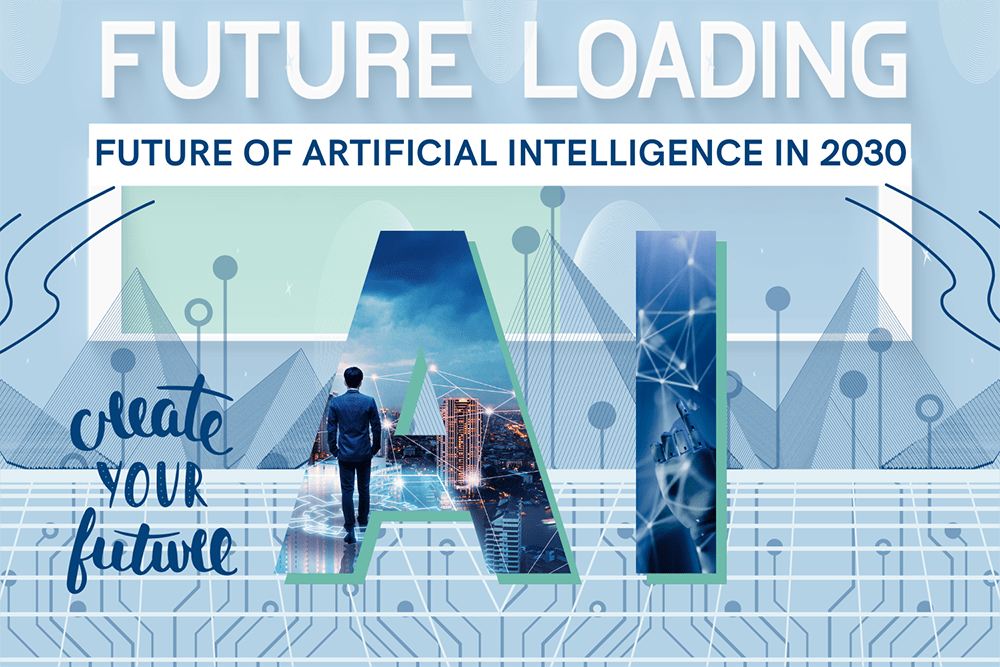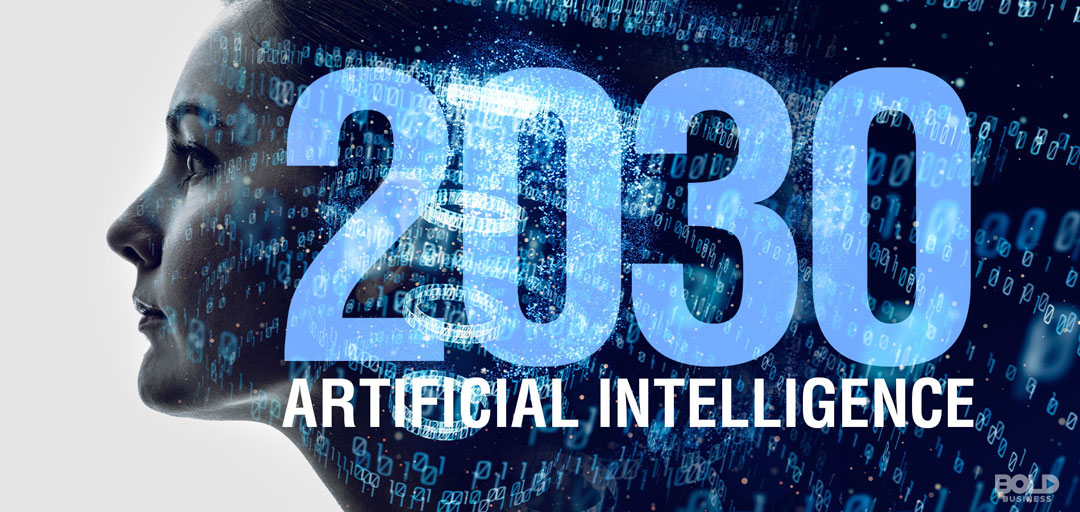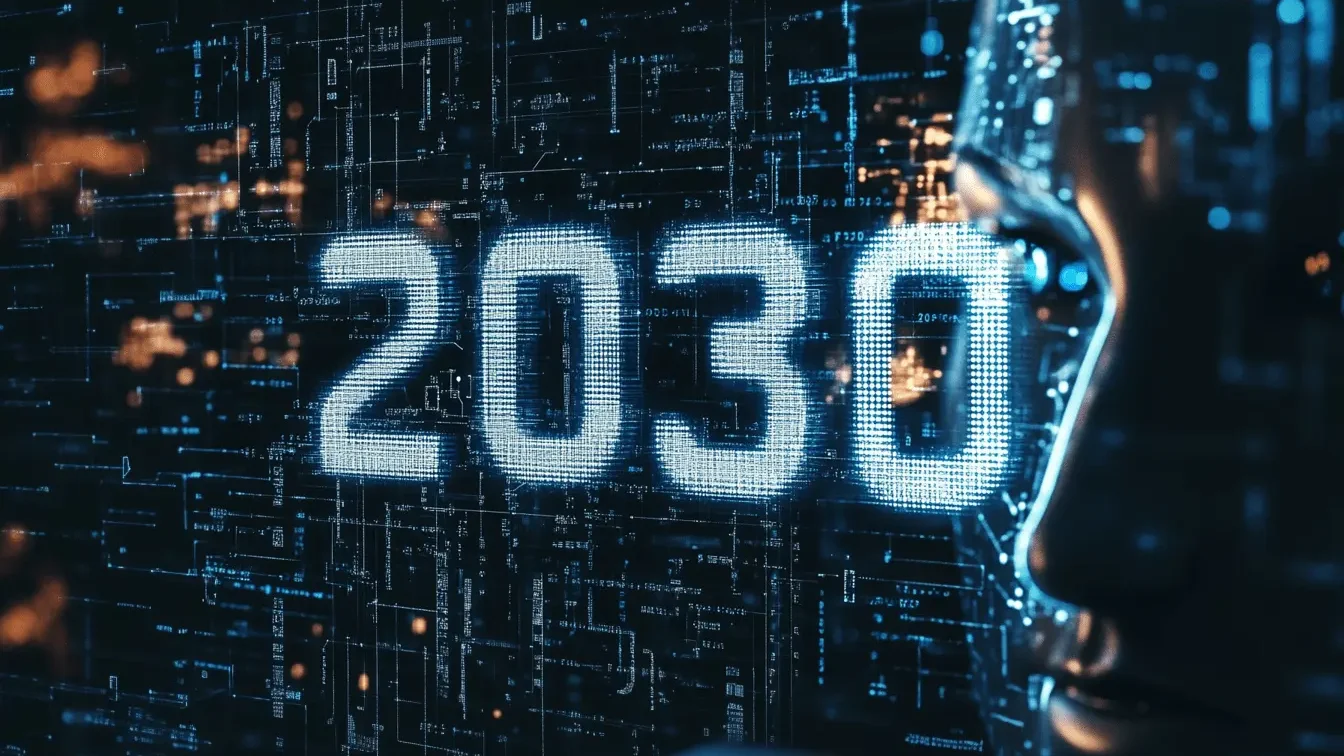Artificial intelligence is changing the world. By 2030, it will be everywhere.
From healthcare to transportation, AI will play a key role in shaping our lives. But what does the future hold for AI? Will it make life easier or create new challenges? As we look toward 2030, it's important to understand the potential impacts of AI.
Experts predict advances in machine learning and robotics. These could lead to smarter cities and personalized education. However, ethical concerns and privacy issues may arise. Balancing innovation with responsibility will be crucial. Exploring the future of AI is not just about technology. It's about how we adapt, evolve, and embrace changes in society. Join us as we dive into the possibilities AI brings for 2030.

Credit: www.aitude.com
Ai In Healthcare
AI can help doctors with patient care. It helps in finding diseases early. This means better treatment for people. Doctors can use AI tools to check medical images. These tools find problems faster than humans. This helps doctors save time. Patients get care more quickly and safely.
AI helps in medical research by sorting data. It finds patterns in big data quickly. Scientists use these patterns to make new medicines. AI makes research faster and more accurate. This can help in finding cures for diseases. AI works with researchers to improve health solutions.
Ai In Transportation
Self-driving cars are the future of travel. They can drive without help from people. These cars use AI to see roads, signs, and other cars. AI helps them stay safe and avoid crashes. People can relax while the car drives. This makes trips more fun and less stressful. Traffic jams might become a thing of the past. More cars can fit on the road. This helps everyone get to places faster.
Smart traffic systems use AI to manage roads. They watch cars and control traffic lights. Faster routes are found by these systems for drivers. Traffic flow becomes smoother and quicker. Less waiting at red lights. People save time and gas. Cleaner air because of fewer cars idling. Roads become safer with fewer accidents. Everyone benefits from smarter traffic.
Ai In Education
AI helps students learn better. It creates custom lessons for each child. Students get lessons that match their skills. This makes learning fun and easy. AI can see how a student learns. It changes lessons to fit their needs.
AI tutors are smart helpers. They answer questions fast. AI mentors guide students like a teacher. They help with homework and study tips. Students can learn anytime, anywhere. AI tutors are patient and never tired. They help students learn at their own pace.
AI In Finance
AI makes banking faster. Robots can handle simple tasks. Like paying bills or checking balances. This helps banks work better. Customers wait less. AI can spot mistakes quickly. It can even stop fraud. Banks save money. Customers feel safe. AI learns from data. It gets smarter over time. Banks use AI to plan new things. AI helps banks grow. Everyone benefits from AI in finance.
Banks use predictive analytics for smart choices. AI looks at past data. It can guess future trends. Banks know what customers need. AI helps make better plans. It can predict loan risks. Banks avoid bad loans. AI helps find good investment spots. Banks earn more. AI gives banks the power to understand data. Customers get better deals. Everyone wins with AI in banking.
AI in Retail
AI makes shopping fun and easy. It helps stores know what you like. Personalized recommendations appear right on your screen. This makes shopping faster. Stores can talk to you in your language. This makes you feel special. Chatbots answer questions quickly. They work all day and night. No more waiting for help. They make shopping smooth and friendly.
AI keeps track of items in the store. It knows what is selling fast. Smart systems tell workers when stock is low. This stops shelves from being empty. Stores can order items on time. AI helps find the best prices. This saves money for stores. Less waste means more savings. Everyone benefits from this smart help.

Credit: www.boldbusiness.com
AI in Manufacturing
Smart factories use AI technology to make work faster. Machines talk to each other. They fix problems on their own. People and robots work together. They build things with less mistakes. Smart factories use less energy. This helps the environment. These factories can change quickly. They make new things when needed. Workers learn new skills. They help run the machines.
AI helps in planning and moving goods. It tells where items should go. Fewer items get lost. AI makes sure items arrive on time. It helps in keeping the right amount of stock. This saves money. AI checks for issues before they happen. It helps companies be ready. Faster deliveries make customers happy. AI makes supply chains smooth and smart.
Ethical Considerations
AI can sometimes be unfair. This happens when data is not balanced. Bias in AI can hurt people. It might treat some groups unfairly. It's important to use diverse data. This helps AI make fair choices. People must check AI systems often. They need to ensure they are fair to all. Fair AI is good for everyone.
AI uses a lot of personal data. Privacy is a big worry. People want to keep their data safe. They fear it might be shared without permission. Data protection is crucial. Companies must respect people's privacy. They should tell users how data is used. Safe AI can build trust with people.
AI And Employment
Many worry about AI taking jobs in the future. Machines can do tasks faster. They don't need breaks. This might mean fewer jobs for people. Factories could use more robots. Cashiers might be replaced by self-checkout machines. Some jobs might disappear. It's important to think about this change. People need to learn new skills. This can help them find new work.
AI creates exciting new jobs too. People can work with machines. This is called collaboration. New jobs need people to design and fix AI systems. There will be roles in AI ethics. People must decide if AI is being fair. Learning about AI can open many doors. It's an exciting time for young learners. Opportunities will grow as AI grows. Everyone should prepare for these changes.

Credit: hyperight.com
Frequently Asked Questions
What will be the future of AI in 2030?
AI in 2030 will revolutionize industries, enhancing automation, personalization, and decision-making. It will drive advancements in healthcare, transportation, and education. AI ethics and regulation will become crucial as technology evolves. Expect smarter AI integration in daily life, improving efficiency and innovation across sectors.
Which jobs will be replaced by AI by 2030?
AI may replace jobs like data entry clerks, telemarketers, factory workers, and basic customer service roles by 2030. Creative fields, strategic decision-making, and complex problem-solving jobs are less likely to be replaced. Adaptability and learning new skills can help future-proof careers in the AI-driven economy.
Will AI replace programmers by 2030?
AI will not completely replace programmers by 2030. It will automate repetitive tasks and assist coding. Human creativity and problem-solving remain essential in software development. AI tools will augment programmers' efficiency, but human oversight and innovation will still be crucial.
What will AI look like in 2050?
AI in 2050 will be highly advanced, seamlessly integrated into daily life, and capable of human-like interactions. It will revolutionize industries with automation, personalized experiences, and enhanced decision-making. AI will likely prioritize ethical considerations and privacy, ensuring a beneficial coexistence with humanity.
Conclusion
AI's future by 2030 holds immense promise. Rapid advancements reshape industries daily. New technologies create exciting possibilities. Human lives will change in profound ways. AI will make tasks easier and faster. Businesses will find new ways to innovate. Challenges remain, but solutions are emerging.
Ethical considerations will guide AI's development. Collaboration between humans and AI is key. Together, they can achieve amazing things. Staying informed is crucial for adapting to these changes. Embrace the journey into this AI-driven future. Let's prepare for a world where AI plays a vital role.
Exciting times lie ahead!
.png)



0 Comments